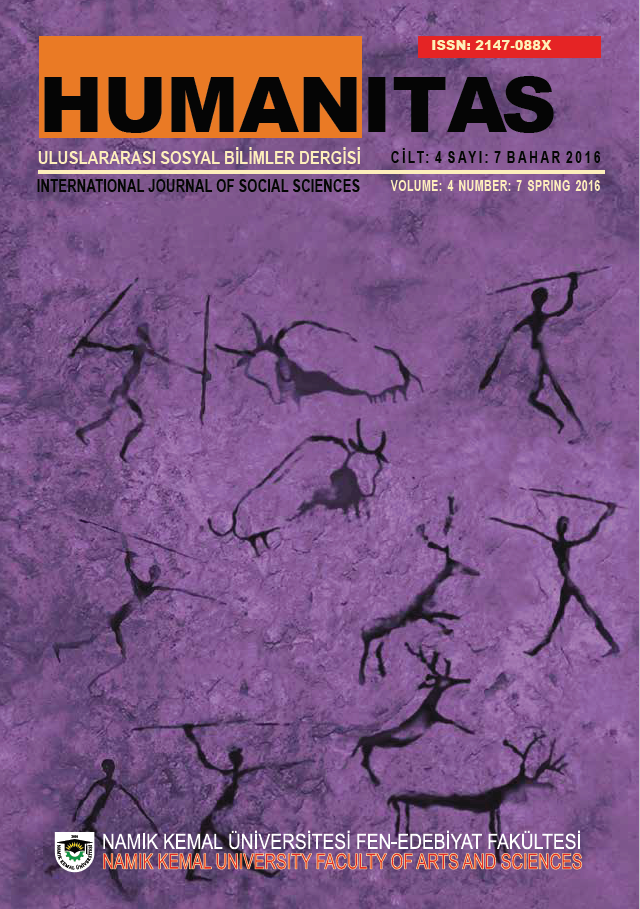DAS ‚UNHEIMLICHE’ BEI SIGMUND FREUD ALS SYNTHESE AUS LITERATUR- UND PSYCHOANALYSE
THE 'UNCANNY' IN SIGMUND FREUD AS A SYNTHESIS OF LITERARY ANALYSIS AND PSYCHOANALYSIS
Author(s): Özlem TekinSubject(s): Social Sciences, Psychoanalysis, Theory of Literature
Published by: Namık Kemal Üniversitesi Fen-Edebiyat Fakültesi
Keywords: Sigmund Freud; Psychoanalysis; Literary Analysis
Summary/Abstract: Sigmund Freud, a scientist, whose significance in the field of psychology and in many other scientific disciplines is undeniable to this today, merges and implements his psychoanalytical insights to the analysis of literary works in his essay The Uncanny (1919) in order to illuminate the 'uncanny' phenomenon. What exactly is the 'uncanny'? By which factors is it determined? How does Sigmund Freud apply his insights from psychoanalysis to explain the phenomenon in literature, and in turn to get closer to the understanding of the 'uncanny' as such? And what is the use of the synthesis of literary analysis and psychoanalysis for literary studies? The aim of this paper is to address these questions by following Freud's essay The Uncanny (1919). First of all, the narrowing of the definition of the 'uncanny' derived from Freud's etymological considerations needs to be carried out. In the following step, the 'uncanny' derived from his psychoanalysis needs to be differentiated into the 'uncanny of experience' and into the 'uncanny of fiction'. On this basis the 'uncanny' is then to be applied specifically to the works of literature resulting in their Freudian psychoanalytic interpretation. In conclusion, the beneficial implications of combining literary analysis and psychoanalysis to the study of the 'uncanny' phenomenon and to the literary studies are to be evaluated.
Journal: Humanitas - Uluslararası Sosyal Bilimler Dergisi
- Issue Year: 4/2016
- Issue No: 07
- Page Range: 437-454
- Page Count: 18
- Language: German

